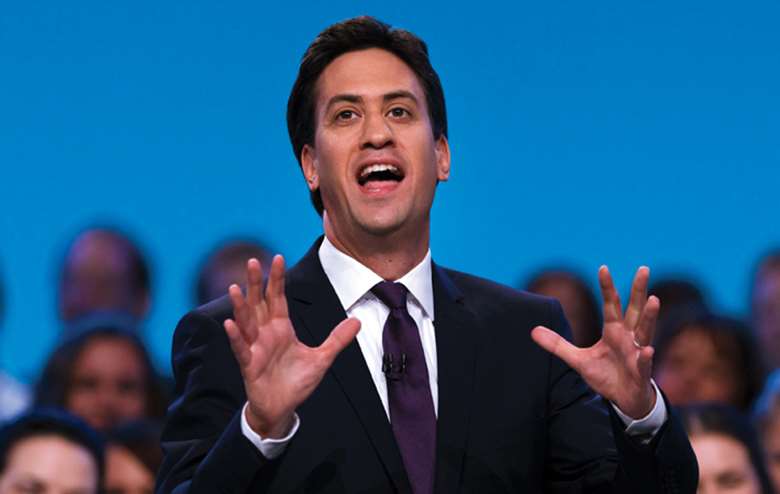Labour outlines policies for children
Neil Puffett
Thursday, January 10, 2013
Last week's Brighton conference saw Labour set out some concrete proposals for children and families.

With a little over 18 months until the next general election, Labour gave the children and young people's sector plenty to ponder following its annual conference in Brighton, with a range of policy announcements.
Party leader Ed Miliband used his speech to announce two key policies relating to children, young people and families that a future Labour government will adopt, while shadow chancellor Ed Balls unveiled plans to extend free childcare.
Miliband said the controversial under-occupancy tax, dubbed the "bedroom tax", would be axed under Labour, a move that will go down well with a host of charities that have been critical of it on child poverty grounds since its introduction in April. Speaking at a fringe meeting on welfare reform, shadow employment minister Stephen Timms summed up his party's thinking on the matter, stating that it was "utterly wrong" to "deny people a large chunk of their housing support as a punishment".
Miliband also earned the approval of young people and youth groups by announcing plans to give the vote to 16- and 17-year-olds. Should Labour come to power, 16- and 17-year-olds would be legally able to vote at a general election in 2020. That would mean children currently aged nine or 10 would be the first to be able to exercise this right.
FREE CHILDCARE
Meanwhile, former Children's Secretary Balls announced that free childcare for threeand four-year-olds would be extended from 15 hours a week to 25.
Speaking at a Resolution Foundation fringe event on the future of childcare, Yvette Cooper, shadow home secretary and shadow minister for women and equalities, said Labour sees childcare as part of the nation's "economic infrastructure".
"Economic infrastructure isn't just about cars, trains and bricks and mortar. It's about having flexible support for families so they can work," she said.
"It has really got to be about family finances. Nursery costs have gone up six times faster than wages in the last year alone."
The announcement has been welcomed by children's charities. Speaking at the same event, Anand Shukla, chief executive at the Family and Childcare Trust, described the plans as a "radical change".
"Twenty-five hours gives a part-time worker a chance of working three days," he said.
"It is really good news."
YOUTH JUSTICE
There could also be a radical review of the way young offenders are dealt with under Labour. While praising the work of the Youth Justice Board, which was set up by the previous Labour government, shadow justice minister Rob Flello said it is time to end the use of methods that do not work, citing young offender institutions (YOIs) as a prime example.
"I want a fundamental review of what works and what doesn't," he said. "Let's stop the insanity of doing the stuff that doesn't work."
However, the potential for a grand redesign could be stymied by cost, and the fact that the coalition government is planning its own shake-up of the system, with proposals to replace YOIs with so-called "secure colleges" due to be published in October.
CHILDREN IN CARE
Details of possible Labour plans for the care system also emerged from shadow children's minister Lisa Nandy, who is contributing to the party's policy review. She said the party's policy on children in care and care leavers will be based on "relationships", with "fostering for life" currently under consideration as one of a number of ways of improving outcomes for vulnerable young people.
She said Labour would also seek to end the unnecessary use of out-of-area care placements, and look at ways of making more use of kinship care.
"We wouldn't move children out of area unless it was right for them," Nandy said.
She also signalled that it would address the high turnover of children's social workers.
"One of the reasons many children are so distraught and angry is because they have had so many social workers. It causes a lot of disruption," she said.
"Instead of putting efforts into recruiting more people, we will look at the turnover of social workers. They are dealing with an incredible workload and pressures.
"We could do simple things such as providing administrative support so that they can get out of the office."
LIBERAL DEMOCRAT PARTY CONFERENCE
The key children's policy proposal to emerge from the Liberal Democrats' conference in Glasgow, was around free school meals.
Party leader Nick Clegg used his speech to announce details of a £600m scheme that will see all children in reception and years 1 and 2 offered a hot lunch from September 2014.
The scheme has been welcomed by children's charities, including the National Children's Bureau and 4Children, as a way of improving children's diets and health, and, in turn, their performance at school, as well as easing pressure on family budgets. Clegg said the offer will be extended to all primary school pupils if his party is re-elected in 2015.




